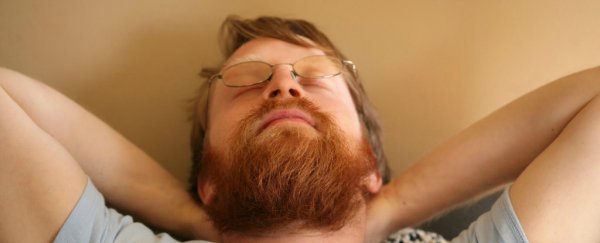Right now in Australia, most states are preparing to put their clocks forward 1 hour as we head into daylight saving time this weekend - or we're relying on our iPhones to do it for us. But while many countries around the world now do something similar twice a year, a growing body of evidence shows that this subtle shift can actually have some pretty big impacts on our health.
This is because our bodies aren't governed by any measure of time or day. They only really care about one thing - the presence or absence of sunlight. "When daylight hits, we receive a dose of hormones to wake us up, when it gets dark, our bodies produce hormones to calm us down and make us sleepy," our editor Bec Crew wrote earlier this year. "When we ignore that very basic mechanism, and force our bodies to function according to arbitrary times, we're risking our health, researchers are finding."
Research has now shown that forcing our bodies to wake up earlier than our circadian clock expects or wants us to can cause something called 'social jet lag', which can impact our metabolism, sleep patterns, and hormonal health. In fact, there's a strong link between leading a life that's out of sync with your natural body clock, and conditions such as obesity and heart disease.
Experts even believe that we're waking up too early for school and work, and according to our body clocks shouldn't start until at least 10am. "This is a huge issue for society," Paul Kelley, a circadian rhythm expert from Oxford University in the UK, told David Barnett at The Guardian earlier this month. "This causes serious threats to health, mood performance and mental health."
The worst part of all of this is that daylight saving is actually entirely pointless. Not only does it put our bodies under unnecessary stress, it's also annoying to remember, and actually costs governments hundreds of millions of dollars to regulate.
Scientists are now calling to get rid of this system and instead move to a universal time zone, where we all follow the patterns of sunrise and sunset, rather than 'socially acceptable' working hours. Unfortunately, that's probably not going to happen anytime soon, so in the meantime, we've put together some science-backed tips to help you cope with the time zone shift.
According to Greg Murray, an expert on the circadian system from Swinburne University of Technology in Australia, the best strategy is just to accept daylight saving and ease into it gradually.
He suggests progressively moving your clocks forward 15 minutes a day leading up to the official switch, and then helping your body clock adjust naturally by avoiding caffeine after midday and alcohol in the evening.
Making the most of the light available to you in your new time zone can also help. "We can help our body clock synchronise with the new clock time by getting light exposure early in the day, and avoiding bright light in the evening," he explains.
And if you do feel tired following the shift, embrace it and avoid scheduling anything too strenuous or important in the days following. After all, if you look at it from a scientific point of view, you've just put your body through the stress of a time zone change, without any of the benefits.

